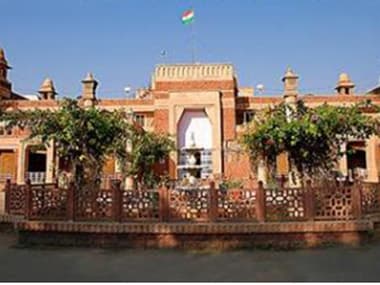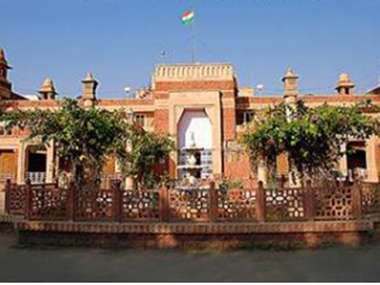The Jain tradition of Santhara, or starving oneself to death, is said to have the objective of attaining salvation. However, the Rajasthan High Court ruled on Monday that the tradition is illegal as it amounts to attempting suicide, reported The Telegraph on Tuesday. Justice Sunil Ambawani of the Rajasthan High Court, in his judgment, held that such an action would be punishable under section 309 (attempted suicide) and section 306 (abetment to suicide) of the Indian Penal Code. The latter provision is meant for relatives or community members who could take the pretext of Santhara to cause the death of a person in order to take hold of their property. [caption id=“attachment_2387520” align=“alignleft” width=“380” class=" “]  Rajasthan High Court building. Image courtesy: hcraj.nic.in[/caption] While attempted suicide can lead to imprisonment for a year, abetment to suicide can land a person in jail for up to ten years. Nikhil Soni, who petitioned the High Court seeking a ban on the practice, was moved to act on the issue after the death of a 60-year old woman named Bimla Devi Bhansali. A report in The Times of India at the time said that she had been suffering from an incurable brain tumour and doctors had given up on her. Subsequently, the woman relinquished food for 14 days, eventually leading to her death. The Telegraph quoted Soni as claiming that in her final hours, the woman seemed to make a last-ditch request for food and water. However, her voice was drowned out by the religious songs being sung around her, he alleged. While Jain organisations contended that banning the practice would curtail the rights of the minority community to practice their religion, the court said, “The respondents failed to establish that Santhara is an essential religious practice without which the following of Jain religion is not possible.” Earlier, a Jain religious practice of diksha — the ceremonial initiation of one as a sadhu or sadhvi, after they have renounced worldly possessions — was brought to the attention of the court, when it emerged that a child took diksha at the age of 8 years, after NGO Childline reported the matter to the Child Welfare Committee (CWC). A Bombay High Court-appointed committee had later found that the decision did not appear to be her own and that she did not know the consequences of her decision. A report by Mumbai Mirror on the case is available here. Even as the Rajasthan High Court has held that the practice of Santhara amounts to attempting suicide, a proposed legislation, the Mental Health Bill, 2013, seeks to decriminalise the act of trying to end one’s own life. A section in the bill states that a person who attempts should be presumed to be suffering from a mental illness. A report on the proposed law was published by The Hindu.
The Jain tradition of Santhara, or starving oneself to death, is said to have the objective of attaining salvation. However, the Rajasthan High Court ruled that the tradition amounts to attempting suicide.
Advertisement
End of Article


)

)
)
)
)
)
)
)
)



